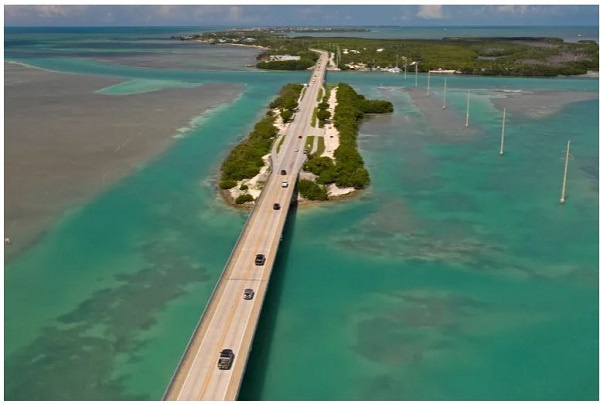
The Florida Keys, a popular destination for asylum seekers fleeing Cuba
MIAMI (Florida, US), Jan 4 (NNN-AGENCIES) — The Florida Keys, a chain of tropical islands that comprise the southernmost point of the contiguous United States, has experienced an influx of migrants and refugees over the weekend, as an estimated 500 asylum seekers arrived by boat to the archipelago’s shores.
The situation amounts to a “humanitarian crisis”, the Monroe County Sheriff’s Office said in a statement, which added that US Border Patrol had issued instructions to delay some landings until federal resources arrive.
The wave of arrivals began with a spike on Saturday and was expected to continue into Monday morning, the statement said.
Citing the resources needed to care for the incoming migrants and refugees, the Monroe County Sheriff’s Office blamed the situation in the Florida Keys on “federal failure”.
“This shows a lack of a working plan by the federal government to deal with a mass migration issue that was foreseeable,” said local Sheriff Rick Ramsay.
The island city of Key West sits about 150km north of Cuba, making it a popular destination for asylum seekers fleeing the Caribbean nation and other countries across the region.
Cuba, in particular, is currently in the grips of a severe economic downturn. The coronavirus pandemic toppled the island’s tourism industry, and the Cuban economy continues to struggle under a US embargo that stretches back nearly 60 years to the Cold War.
The Center for Democracy in the Americas, a US-based nonprofit that opposes the embargo, has reported that the economic crisis has led to the largest wave of Cuban migration in US history.
US Customs and Border Protection logged 224,607 “encounters” with Cuban migrants and refugees from October 2021 to September 2022 — a 471 percent increase over the previous fiscal year.
And rates continue to be high: In October and November alone, the agency reported 65,731 encounters, while the US Coast Guard reported 6,182 Cubans intercepted at sea for the 2022 fiscal year.
That, the Center for Democracy in the Americas said, makes the current exodus larger than the two biggest Cuban migration crises combined: the Mariel boatlift in 1980 and the 1994 Cuban raft exodus.
The asylum seekers arriving in the Florida Keys at the weekend hailed mainly from Cuba, as well, the Monroe County Sheriff’s Office said, with approximately 300 landing on the remote islands that comprise Dry Tortugas National Park, which is only accessible by boat or seaplane.
The park, a popular tourist destination for its coral reefs and 19th-century fort, announced it would close for several days while “law enforcement and medical personnel evaluate, provide care for and coordinate transport” for the migrants and refugees to Key West.
Afterwards, park officials said they expect the US Department of Homeland Security to arrive and take “the lead”.
Another 160 asylum seekers landed in the middle or upper part of the Keys archipelago, the Monroe County Sheriff’s Office also said.
Many of the asylum seekers set out on makeshift or wooden boats that can be precarious at sea.
On Dec 12, the Cuban Coast Guard had to rescue one boat that had an engine failure just offshore from the country’s capital of Havana. A US flag had been painted on the boat’s side.
Florida is one of several US states at the centre of the country’s immigration debate, with Governor Ron DeSantis, a rising star in the Republican Party, denouncing the “dangerous” effect of President Biden’s “lack of immigration enforcement”.
DeSantis made headlines in 2022 when he flew migrants and refugees from Texas to Martha’s Vineyard, a small, left-leaning resort island in Massachusetts, in what White House Press Secretary Karine Jean-Pierre called a “cruel, premeditated political stunt”.
The Biden administration, meanwhile, awaits the outcome of the Supreme Court’s deliberations on Title 42, which was invoked in March 2020 due to the coronavirus pandemic to allow US authorities to turn away most asylum seekers arriving at the country’s southern border with Mexico.
The US Centers for Disease Control and Prevention said last April that Title 42 was “no longer necessary” to fight COVID-19, and in November, a federal judge ruled the policy was “arbitrary and capricious”, ordering it be rescinded.
But Republican legislators are seeking to retain the policy as a bulwark against immigration. The Supreme Court is set to hear arguments in the case in February. — NNN-AGENCIES






